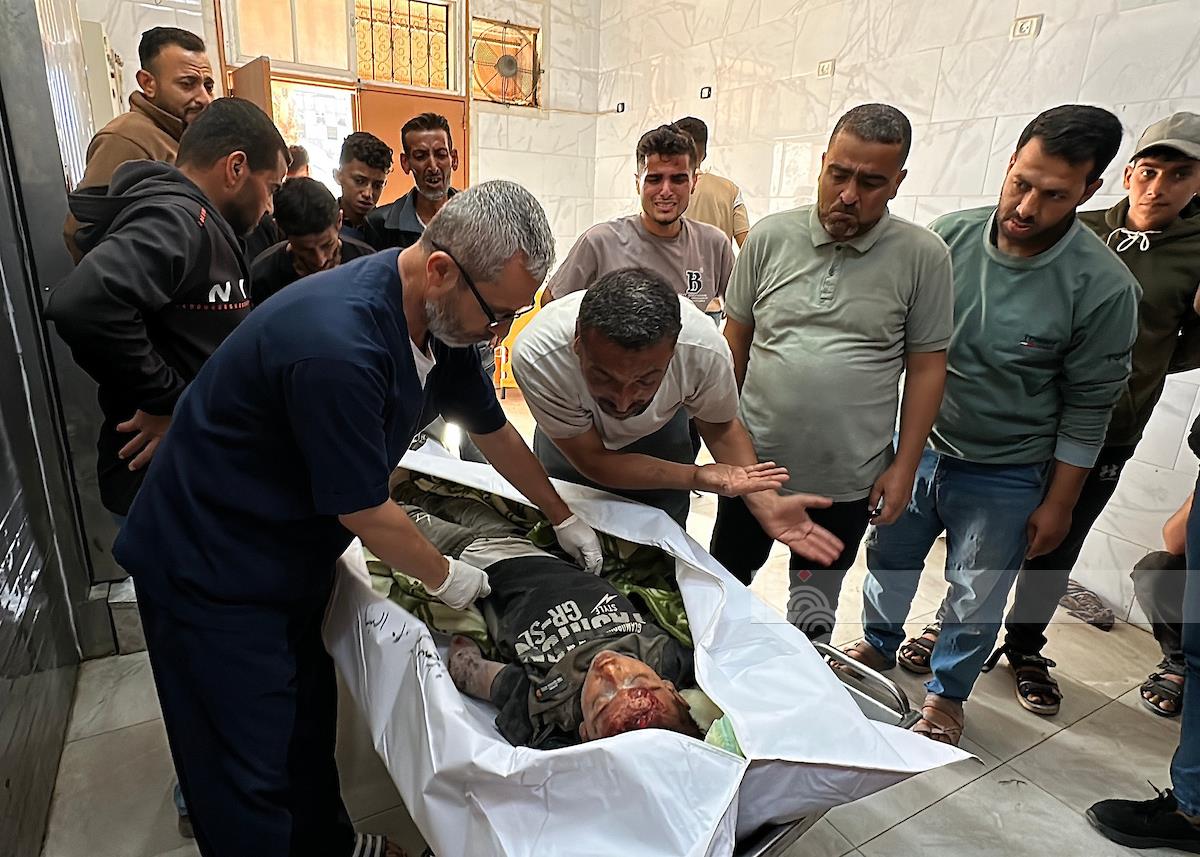JERUSALEM, December 27, 2017 (WAFA) - The Palestinian Human Rights Organizations Council (PHROC) Wednesday called upon the International Committee of the Red Cross (ICRC) to urge Israel to investigate Knesset member Oren Hazan and the Israeli right-wing group verbal assault of Palestinian detainees‘ families.
According to a PHROC press release, on Monday, 25 December 2017, Israeli right-wing Likud Member of Knesset Oren Hazan assaulted a bus transporting families of Palestinian political prisoners from Gaza to Nafha Prison, beyond the Green Line, to visit their detained relatives.
Together with a group of right-wing Israelis, Hazan blocked the entrance to Nafha Prison, boarded the bus hurled abusive and degrading statements at the families and their detained relatives, vowing to do everything in his power to deny them further family visits to Israeli prisons.
He was joined by the right-wing Task Force for the Release of Prisoners and Missing Persons, a group of Israel activists who have taken it upon themselves to deny prison visits to Palestinian families by blocking buses on their way to prisons and by confronting and harassing Palestinians visiting their detained relatives.
It said, “Israel is under an obligation to prevent and protect against acts of ill-treatment such as that experienced by the Palestinian families from Gaza on 25 December 2017.”
“Israel is further under an obligation not to condone statements made by MK Hazan to the effect that he plans to prevent further prison visits by Palestinian families.”
PHROC reaffirmed the importance of family visits to Palestinian detainees and called upon the High Contracting Parties to the Fourth Geneva Convention to ensure Israel’s respect for international humanitarian law.
It called for exerting real pressure on Israel to bring to an end all restrictions imposed on Palestinian prison visits, to halt the unlawful deportation of Palestinian prisoners out of the oPt, and to transfer all Palestinian detainees back to the oPt in line with its obligations as Occupying Power.
The vast majority of Israeli military prisons are located beyond the 1967 line, which means that Israel unlawfully deports Palestinian detainees from the occupied Palestinian territory (oPt) into Israel.
The unlawful deportation of protected persons from an occupied territory into the territory of the Occupying Power is prohibited as a grave breach of the Fourth Geneva Convention and amounts to a war crime punishable by the International Criminal Court.
Article 76 of the Fourth Geneva Convention specifically stipulates that Israel, as Occupying Power, may not detain residents of the oPt in prisons outside of the occupied territory.
As a consequence of the unlawful deportation of detainees by Israel, all Palestinian families from the oPt, with the exception of Palestinian East Jerusalem ID holders, are required to receive an entry permit into Israel in order to be granted the right to visit their detained relatives.
Yet, Israel’s application process for entry permits is lengthy and may take up to three months where as the permit is only valid for one year.
The application is submitted via the International Committee of the Red Cross (ICRC) and then transferred to Israel for processing and approval.
The ICRC, which organizes family visits for relatives of Palestinian detainees from the occupied West Bank and Gaza Strip, have refrained from thoroughly addressing Monday’s incident, only stating that “[t]he ICRC takes very seriously what happened today during the visit of Palestinian families to their relatives detained in Israel. Families have the right to visit their loved ones in a dignified manner.”
An ICRC spokesperson reaffirmed that “[i]t is the responsibility of the competent authorities to ensure that the visits take place safely and without interference.
Part of the ICRC mandate in the oPt is to restore and maintain family contacts and to improve the conditions of Palestinians in Israeli detention.
The right of prisoners to receive family visits and to enjoy proper communication with their families is firmly rooted in international law and is binding upon Israel, as Occupying Power.
Article 116 of the Fourth Geneva Convention enshrines the right of internees “to receive visitors, especially near relatives, at regular intervals and as frequently as possible.”
The Standard Minimum Rules for the Treatment of Prisoners further provided that prisoners have the right to communicate with their families at regular intervals “both by correspondence and by receiving visits.”
Under international humanitarian law, Israel is further required to ensure that protected Palestinian persons “are entitled, in all circumstances, to respect for their persons, their honour, their family rights, their religious convictions and practices, and their manners and customs.
They shall at all times be humanely treated, and shall be protected especially against all acts of violence or threats thereof and against insults and public curiosity.”
On their part, the Palestinian Detainees and Ex-Detainees Affairs Commission filed a complaint to the Israeli government‘s legal advisor against Hazan, and demanded the opening of an exhaustive investigation into the incident and to bring to justice Hazan and all individuals who assaulted the prisoners’ families.
The commission warned against dealing lightly with the perpetrators of this crime, stressing that remaining silent would only lead to the repetition of such crimes.
T.R./M.H.










